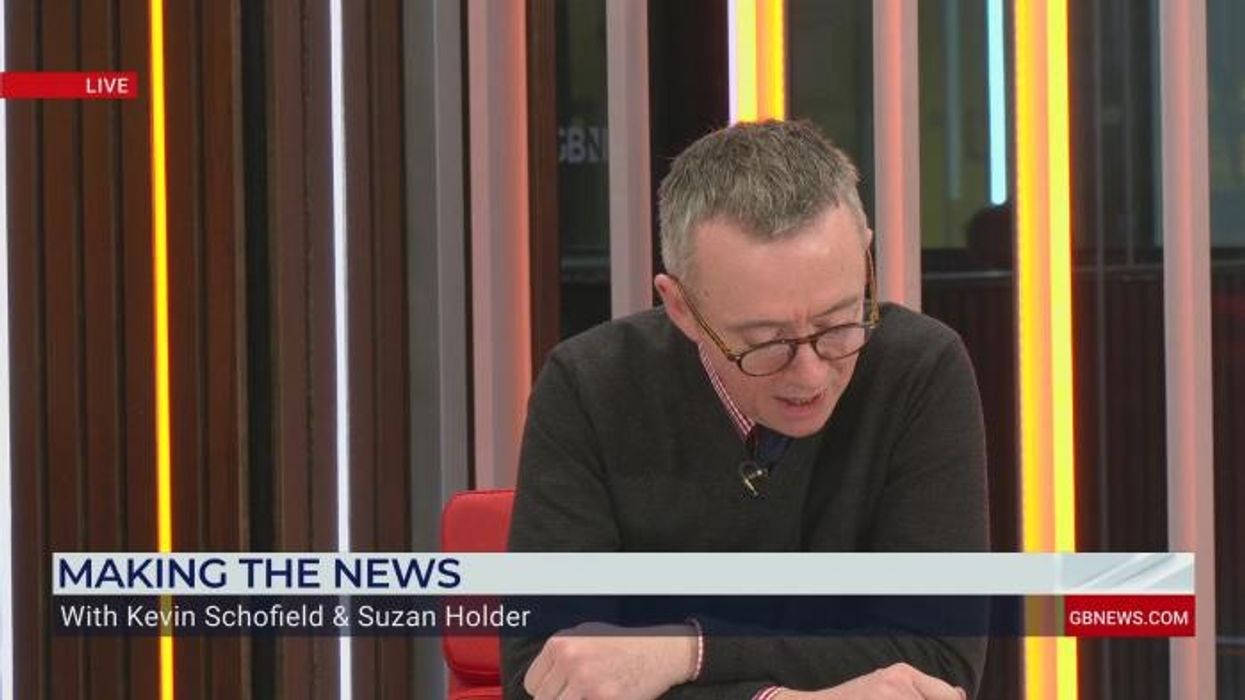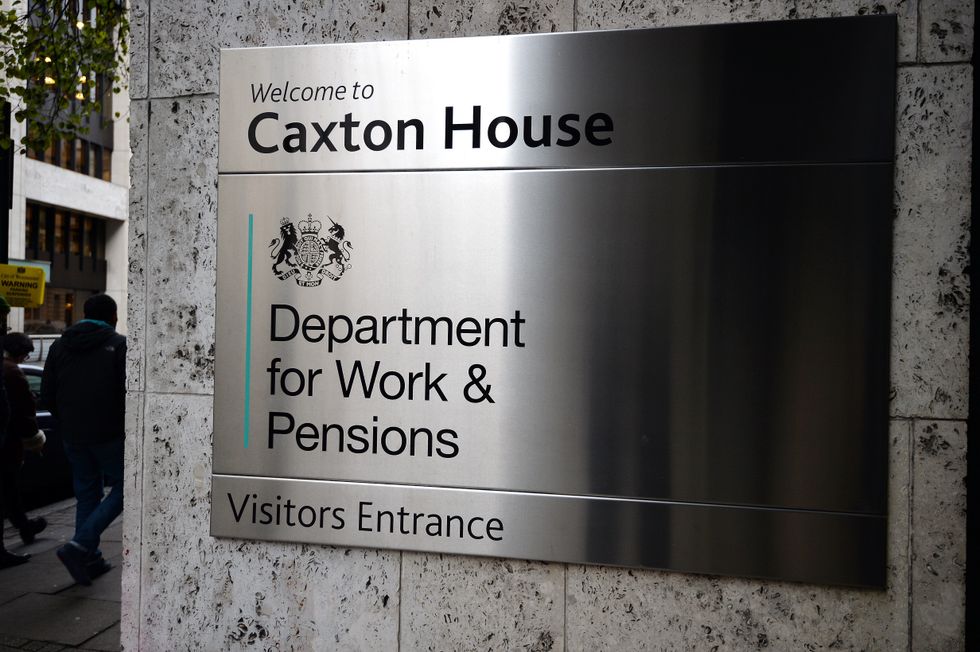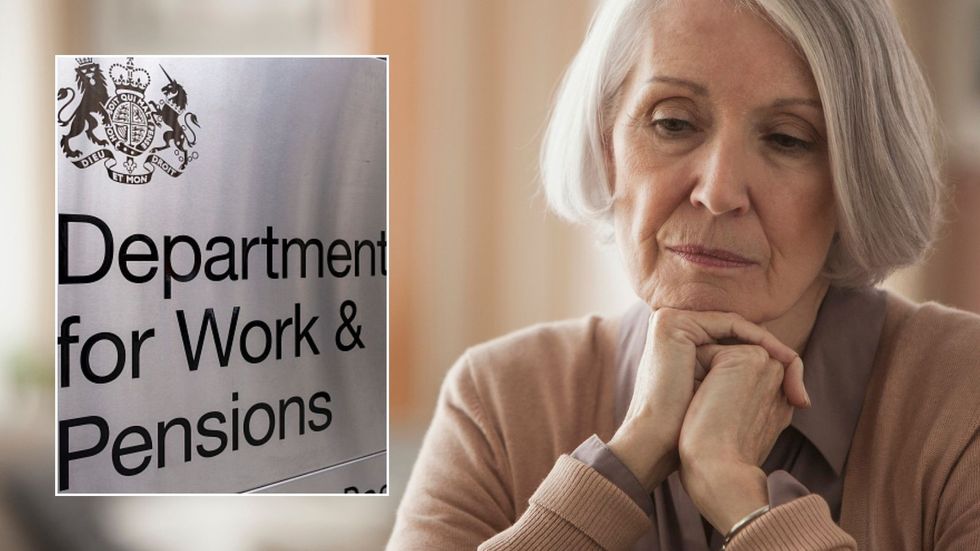DWP issues major update for 700,000 pensioners on PIP as benefit reforms go ahead

‘Groundhog Day!’ Rachel Reeves issued plea as DWP threaten long-term sick with benefits crackdown |
GBNEWS

Plans to overhaul Personal Independence Payment have drawn political backlash and raised new questions for older claimants
Don't Miss
Most Read
Latest
Major changes to disability benefits have reopened a fierce debate in Westminster.
With pensioners mentioned in the proposals, speculation is mounting over who could be affected.
The Department for Work and Pensions has confirmed that 700,000 pensioners will be exempt from Labour's upcoming changes to Personal Independence Payment.
Minister for social security and disability Sir Stephen Timms revealed that people of state pension age will not be affected by the proposed reforms.
DWP figures show that 690,186 people aged between 65 and 79 were receiving PIP in January. The benefit currently supports around 3.7 million people across England, Wales, and Northern Ireland who face challenges due to long-term physical or mental health issues.
In a written response to Labour MP Paula Barker, Timms said: "In keeping with existing policy, people of state pension age are not routinely fully reviewed and will not be affected by the proposed changes."
Timms has provided written assurances that people receiving end-of-life care will maintain their current protections under the PIP reforms.
When asked by independent MP Apsana Begum about end-of-life provisions, the minister confirmed that vulnerable recipients would retain fast-track access.
Timms said: "We recognise that people nearing the end of their life are some of the most vulnerable people in society and need fast-track and unqualified support at this difficult time."
People with 12 months or less to live will continue accessing the enhanced rate of the daily living component.
The existing fast-track route under special rules for end of life will remain unchanged, with claims currently cleared in two working days. "This fast-track route will not be impacted by the new eligibility requirement for PIP," the minister confirmed.

People with 12 months or less to live will continue accessing the enhanced rate of the daily living component
| PAThe Government faces mounting parliamentary opposition over the welfare reforms, with reports suggesting a backbench rebellion could spread to more than 100 MPs.
The Office for Budget Responsibility projects that the anticipated changes could impact around 800,000 PIP recipients, though some independent experts predict the impacts could be even greater.
The proposed reforms form the bulk of savings in Labour's "Pathways to Work" green paper. The Government plans to tighten PIP eligibility as part of measures aimed at getting more working-age people currently on benefits into employment.
The new eligibility requirement would mandate that people must score a minimum of four points in one daily living activity to qualify for the daily living component, applying to new claims and award reviews from November 2026, subject to parliamentary approval.
Labour MP Peter Lamb has declared his intention to vote against the proposed PIP restrictions, highlighting growing unease within the party.

Liz Kendall has defended the welfare reforms, insisting she will press ahead with measures to cut the welfare bill despite growing opposition
| PASpeaking on BBC Radio 4's Westminster Hour, the Crawley MP said he would be "voting against anything which is going to restrict access to PIP further than it's currently restricted".
Lamb revealed that many Labour MPs across different wings of the party are "deeply uncomfortable" with what ministers are planning. The comments underscore the scale of internal opposition facing the government over the welfare reforms.
The backbench rebellion threatens to complicate the Government's legislative agenda, with the proposed changes requiring parliamentary approval before implementation in November 2026.
Work and Pensions Secretary Liz Kendall has defended the welfare reforms, insisting she will press ahead with measures to cut the welfare bill despite growing opposition. In a speech in London last week, Kendall claimed the move will address an "economic and social crisis".

DWP issues major update as PIP reforms go ahead
| GETTY"We are the only economy in the G7 whose employment rate still hasn't returned to pre-pandemic levels, and spending on sickness and disability benefits in most other comparable countries is either stable or falling since the pandemic, yet ours continues to inexorably rise," she said.
Kendall added: "There is nothing Labour about accepting the cost of this economic but above all, social crisis, paid for in people's life chances and living standards."
Meanwhile, Reform UK leader Nigel Farage is expected to commit to restoring the winter fuel payment in full and scrapping the two-child benefit cap if elected in future, attempting to outflank Labour with traditional working-class supporters.
More From GB News










